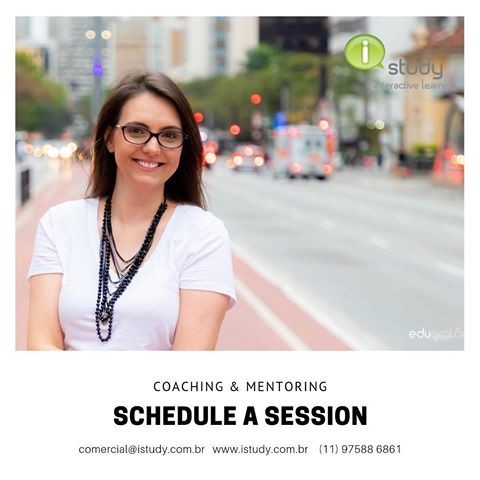Building Rapport with Students: So Much More than a 'Good Class'
Having graduated in Languages and with a background in Law, Karin Heuert Galvão has worked in ELT and training for nearly two decades. At i-Study Interactive Learning, a language school based in São Paulo, Brazil, she works as Director of Studies. She is a Google Educator and also works as a Teacher and Teacher Trainer specialized in Business English. Karin holds certificates as Life Coach by the European Mentoring & Coaching Council (EMCC), International Association of Coaching (IAC), the Professional Coaching Alliance (PCA), the Association for Coaching and Sociedade Latino Americana de Coaching (SLAC). At Omeltech Desenvolvimento, a training center based in São Paulo, she works closely with the International Leadership Programs as a corporate trainer. www.istudy.com.br Email: karin@istudy.com.br

If you ask me about my memories of a teacher, I always remember how that teacher made me feel. I remember my first English teacher, Helena, she was kind, loving, supportive and always made me feel as if I could conquer the world, that anything was possible if I put my mind to it.
When I first learned the word 'rapport', as a speaker of Portuguese, I could not really understand what it meant. I talked to colleagues, I read articles and books, I discovered quotes on the topic, but I just could not get my head around and fully understand the term, it was only when I 'felt rapport' that I was fully able to understand what it truly means.
Everywhere you go, every teacher training or development course you take, eventually, people will talk about rapport. In theory, building rapport seems an easy task and everyone is able to do it, but have you ever felt as if your lesson could have been better? Can you remember a lesson you planned so carefully and students were able to accomplish the goals, but at the end, something was missing, and you could not really tell what it was? Chances are it was lack of rapport.
The main difference between a 'good lesson' and a 'great lesson' falls into human connections. When you develop bonds with your students, when they feel comfortable with you in a way that trust becomes tangible, true learning happens and that is just magical. It is more than a theory, it is more than techniques, methodologies or approaches, it is about 'being there'.
Having been a licensed Coach myself, one of the skills I take to class with me is "The Inner Game Equation". As teachers, we do our best to help our students achieve their goals, we are there, every step of the way, guiding, supporting and ensuring learning, therefore, we tend to interfere in the learning process dramatically. In his book "Coaching for Performance", Sir John Whitmore explains Timothy Gallwey's theory on "The Inner Game Equation":
Performance = potential - interference
P = p - i
From my experience, "The Inner Game Equation" allows me to bond with my students in a way that maximizes trust, in other words, my role as a teacher shifts to being a "partner in learning" rather than being "a guide". Hence, my students have delivered better results in and outside the classroom, they have had higher motivation and more importantly, we are in sync.
Sir John Whitmore says that "Coaching is unlocking people's potential to maximize their own performance." which makes me wonder: "Isn't it exactly what we try to do as teachers?" And the answer is "yes".
In summary, building rapport with our students is indeed much more than delivering a "good lesson", it is about building solid and trustworthy relationships that will consequently boost their performances, nonetheless, we are only able to do this successfully by taking a step back and letting them shine, letting them play "Their Inner Game".
References
Coaching for Performance, Sir John Whitmore, 2017 pp 12-13.
Please check the How to be a Teacher Trainer course at Pilgrims website.
Please check the How to Motivate Your Students course at Pilgrims website.
On (or Off) Song? Are Producers of Materials Using Songs and Song Lyrics Making the Most of this Resource’s Potential?
Chris Walklett, UKBuilding Rapport with Students: So Much More than a 'Good Class'
Karin Heuert Galvão, BrazilLearning Styles: Controversies, Misconceptions, and Definitions
Marjorie Rosenberg, AustriaThe Irreplaceable Human
Rob Szabo, GermanyReflective Teaching: An Indispensable Tool for Effective Teachers
Fatmah Ali, Saudi Arabia